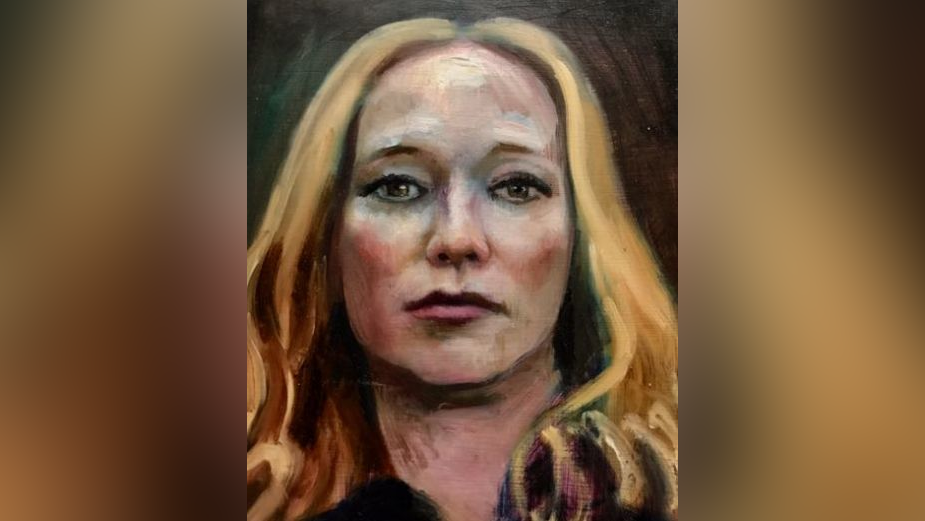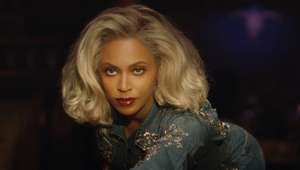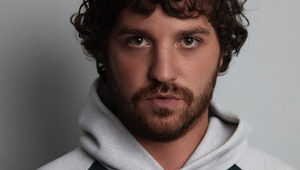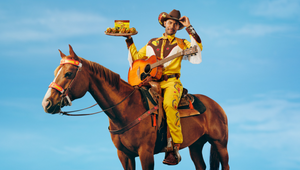
5 Minutes with… Kerstin Emhoff

Prettybird is arguably one of the strongest and most exciting production companies in the world right now - and has been for some time. Its roster boasts the likes of Melina Matsoukas, Tim & Eric, Matt Lambert and The Daniels, and it has been involved in all forms of production - from commercials, music videos and features to entertainment and experiential - since its formation in 2007.
The co-founder and executive producer of Prettybird is Kerstin Emhoff. Under her guidance the company has picked up Grammys, Emmys, D&ADs, Cannes Lions, Clios and more. It bagged the first ever Music Grand Prix at Cannes in 2016 for Beyonce’s ‘Formation’, directed by Melina Matsoukas.
What’s more, Kerstin recently launched Pipelines, a not-for-profit initiative that’s geared towards increasing opportunities in adland for diverse, young people - something that’s been part of the backbone of Prettybird since its beginnings.
LBB’s Addison Capper caught up with this force of nature to find out more.
LBB> What did you do before you fell into the world of production? Were you quite single-minded growing up or did you flit around industries before finding your calling?
KE> I was a very determined child. I went to performing arts school and wanted to be a famous ballerina but realised in high school that I would never be a ballerina and I couldn’t act, so I went to film school. After school I moved to LA and immediately became a waitress. One day I waited on a bunch of ad guys having dinner, who told me they could get me into the ad business. I told them that was a cheesy profession but I had some very dramatic 16mm films to show them. I was immediately hooked into the world of short form.
LBB> What was your first role in production and what were your first impressions of the industry? I know you were at HSI before starting Prettybird - were there companies before that?
KE> I started at a small production company doing everything for the former ad guy, now director. This allowed me to be a producer before I knew anything. A lot of people – they know who they are – helped me bluff my way through it. But I really loved music videos. I was four months pregnant when I worked on Mark Romanek’s Nine Inch Nails ‘Closer’ video, and knew then that I was going to work with directors and not be one – there’s something I have loved about every director I’ve worked with. After I had my son, I had to settle down and be an EP.
LBB> You and Paul Hunter launched Prettybird in 2007 and from the outset always wanted the business to be more than a traditional commercial production company. That model is quite common in 2018 but that wasn’t the case in 2007. What was the mission when you launched and what was the inspiration behind that approach?
KE> I never wanted to start my own company, but I wanted to do films. It was Paul that had a vision of creating a creative community that would support filmmakers, writers, and creators, in whatever they wanted to do. I was inspired to build the foundation that would support that.
LBB> Do you think that being ahead of the curve like that has stood you in particularly good stead to handle the production landscape of 2018? How so?
KE> In the early days we always said “yes we can do that” to any project that we would hear about – we wanted to be the first call for every agency to solve a problem. For the most part we figured how to do it, or at least made sure the agency knew we were super passionate about trying. That is still in our DNA, and we are still figuring it out passionately.
LBB> I read that one area you were keen to change the model for when you launched was the music video industry, aiming to bring together musicians and brands - was that to fix the problem of their dwindling budgets? Is this something that’s still important to Prettybird?
KE> The music business was dying when we started PB. We both knew that music videos had to be part of the company but we didn’t want to try to make a business out of them. Paul wanted to make a visual album at that time and we figured that the only way to pay for it would be to get a brand on board. There were many, many failed attempts at that collaboration. We are still working on nailing it. But in the meantime, we’ve managed to keep videos alive and to not need them to pay the rent.
LBB> How would you say the outlook for the company has evolved over its ten years of being open?
KE> It’s the same. We just can’t believe it’s been 10 years!
LBB> Prettybird is currently in Los Angeles and London - how do the two offices interact with each other? Are there plans to evolve the business into new markets in the future?
KE> The offices each have their own personalities but we share the DNA of building diverse talent in all areas of creative expression. China is next for us. It’s really exciting because there is such a need to develop talent from within China. We know there are a lot of amazing things ready be unleashed over there.
LBB> The Prettybird roster is stacked with world-class directors. What are the keys to building and maintaining such a group?
KE> We look for creatives that have a long game, ones that are not just looking to break into a market. Also, our creative community is really special and you see that when everyone is together. It makes me want to cry!
LBB> Diversity has always been something that you’ve championed and you dedicated your One Show Creative Summit presentation to it. How do you feel the industry is handling this issue as a whole right now? There’s a lot of talk but is enough being done?
KE> I’m really upset about this to be honest. I started a non-profit initiative over a year ago that is a really amazing tool to help address opportunities for diverse, young people. I’m truly shocked by the lack of response I’ve received from companies that literally have less than 5% diverse employees. I’m seeing a lot of talk and no action. I need to build an app if anyone out there wants to pitch in.
LBB> Which projects are you most proud of from over the years? Are there any that particularly stick out?
KE> There are too many for different reasons. But most recently, running up on stage to get a Grand Prix for our ‘Formation video – after they played the entire video and seeing the jury president with tears in his eyes – was very memorable.
LBB> I think producers have often got the best stories to tell - have you ended up in any particularly hairy or memorable scenarios during your career?
KE> After waiting for three days for an athlete to show up to our shoot, I went to the Barcelona nightclub that he hung out in in the middle of the night to yell at him. He was in a VIP booth with a lot of ladies and looked shocked when I walked up to him in a sweat suit. He laughed and said he would come, but when I turned and left I heard someone say, “who’s the soccer mom?” He laughed again and said, “she’s no one.”
He did show up.
LBB> What do you like to get up to outside of work? Do you have any particular hobbies or quirks to help you unwind?
KE> I’m not very good at unwinding!















